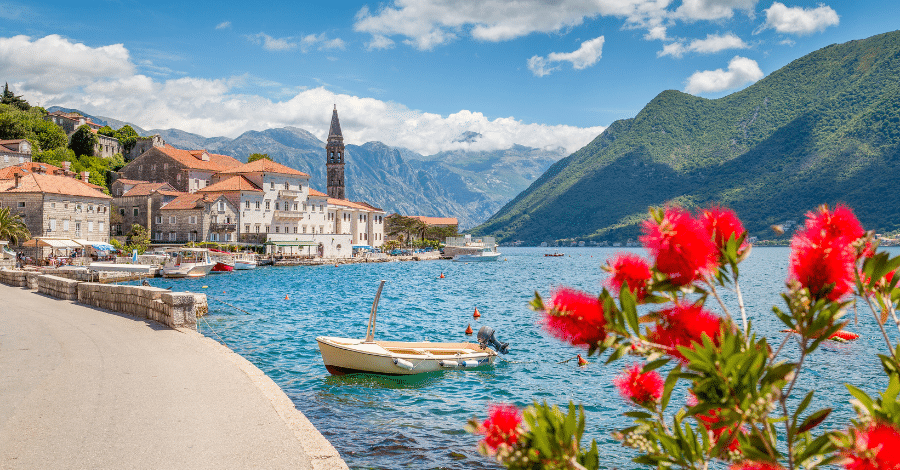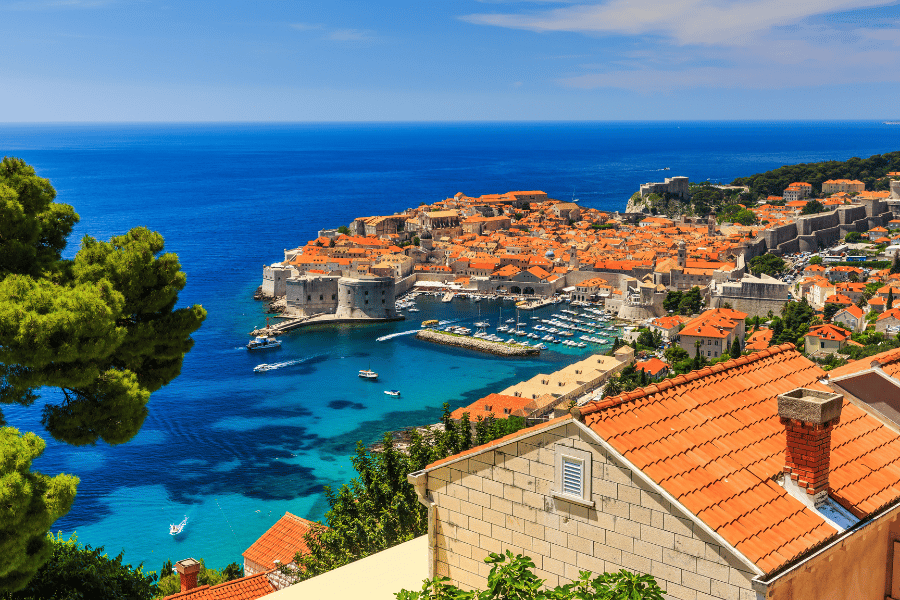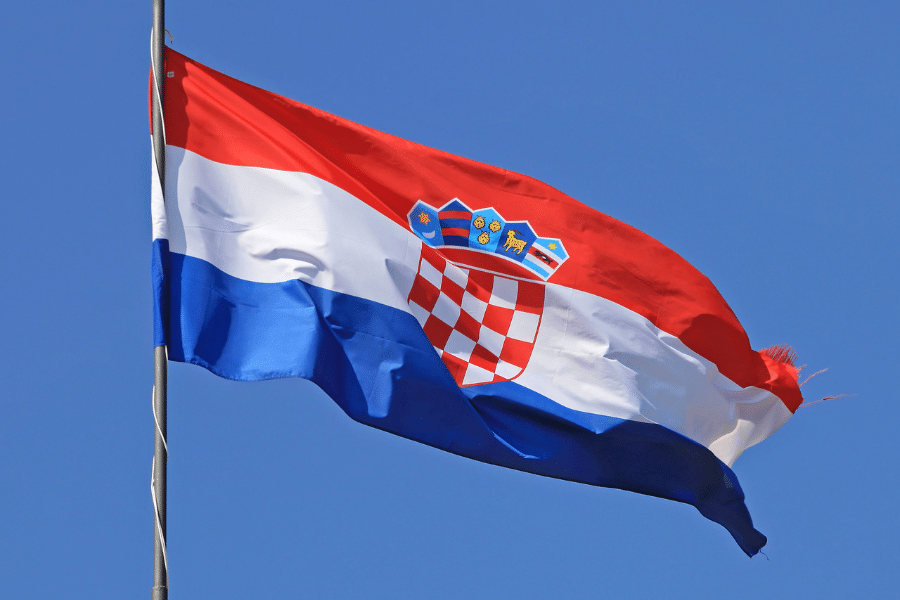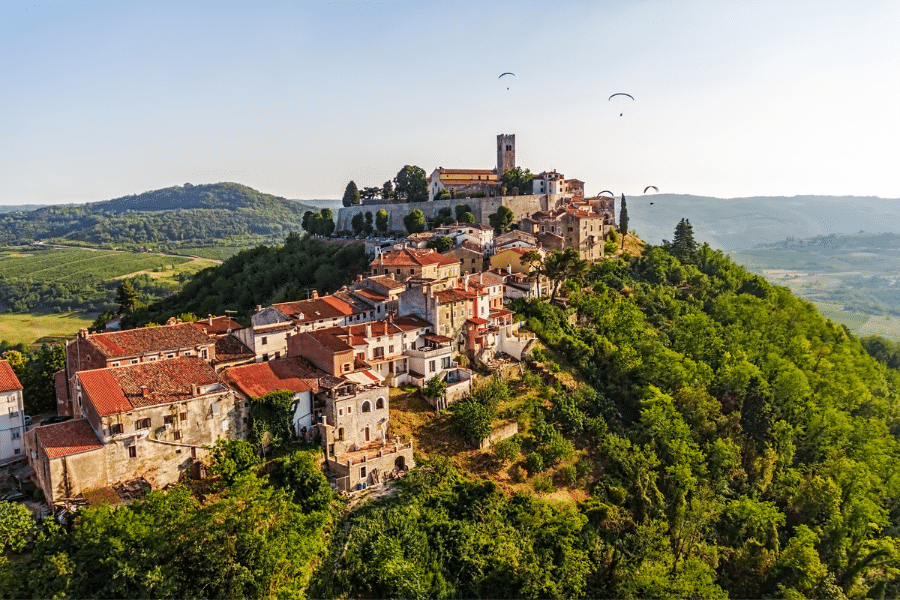Moving to a new country can be an exciting yet daunting experience, filled with many questions and uncertainties. Croatia has emerged as a popular expat destination in recent years, admired for its pretty coastal towns, clear blue sea waters, breathtaking natural landscapes, and interesting food scene.
Whether you’re drawn to the enchanting city of Dubrovnik, the bustling capital of Zagreb, or the picturesque coastal towns, this article is written to be your trusted starter kit to living in Croatia, providing essential information and valuable tips for a smooth transition into your new life as an expat in Croatia.
So, prepare to embark on a remarkable journey as we unravel the secrets of living in Croatia, to help you thrive in this beautiful land.
1. Croatia Visa Requirements and Legal Considerations for Expats
Before making your move to Croatia, it’s essential to understand the visa requirements and legal considerations. As an expat, you’ll need to familiarize yourself with the different visa categories and determine the one that aligns with your intended length of stay and purpose. Depending on your nationality and circumstances, you may need to apply for a work or residence permit.
There are different types of visas available for non-EU citizens, depending on your purpose of stay in Croatia. Temporary stay visas are suitable for tourism, business visits, or family reunification, while residence permits are required for long-term stays and employment. The specific requirements and eligibility criteria may vary depending on the type of visa you’re applying for.
When applying for a visa, you’ll need to prepare the necessary documents, such as a valid passport, completed application forms, proof of purpose of stay (employment contract, invitation letter, etc.), evidence of financial means to support yourself during your stay, health insurance coverage, and police clearance certificates. You must have all the required documents and meet the eligibility criteria to ensure the application process runs smoothly.
The visa application process involves submitting the required documents to your home country’s relevant Croatian embassy or consulate. It’s advisable to check the specific procedures and fees associated with the visa application, as they may vary depending on your location. The processing times can also vary, so planning and submitting your application well before your intended travel date is essential.
Once you have obtained a visa and entered Croatia, you may need to register with the local authorities and obtain a residence permit if you plan to stay for an extended period. Familiarize yourself with the local laws and regulations and your rights and obligations as an expat in Croatia.
You can ensure a smooth and hassle-free visa application process by staying informed and following the official guidelines. For more comprehensive and detailed information about Croatia visa requirements, procedures, and frequently asked questions, we recommend visiting the official website of the Ministry of Foreign and European Affairs of Croatia.
2. Airport Procedures and Transportation Options in Croatia
Your journey begins as you step foot in Croatia. Navigating the airport procedures is usually straightforward, similar to other European countries, with customs and immigration processes efficiently handled. Once you’ve cleared these formalities, you have various transportation options to reach your destination. Taxis, airport shuttles, and private transfers are readily available, ensuring a hassle-free ride to your new home.
Registering with the local authorities is an important step towards establishing your legal presence in Croatia. Depending on your length of stay and purpose, you may need to obtain a residence permit or register with the local police. Familiarize yourself with the specific requirements and necessary documents, such as your passport, proof of address, and employment or study-related documents, to streamline the registration process.
3. Managing Finances and Banking Options in Croatia
Setting up your finances and banking arrangements is essential to establishing yourself in Croatia. Opening a bank account in Croatia will allow you to manage your finances efficiently, receive payments, and make transactions seamlessly.
As a foreigner settling in Croatia, finding the right bank to meet your financial needs is essential for a seamless transition. A reliable and expat-friendly bank can offer services tailored to your unique requirements, from easy international transfers to efficient currency exchange and personalized customer support. Some top banks in Croatia you may want to consider are OTP Bank, Privredna Banka Zagreb (PBZ), Raiffeisenbank, Zagrebačka Banka (ZABA), and Erste Bank.
Research different banks to compare their services, fees, and accessibility. Many banks offer online banking platforms and mobile apps for convenient account management. It’s advisable to inquire about any specific requirements for expats opening accounts, such as proof of residence or employment.
4. Healthcare System and Obtaining Health Insurance
Taking care of your health is paramount when settling into a new country. Croatia boasts a comprehensive healthcare system offering public and private healthcare options. Expats may rely on the public healthcare system, which provides quality care at affordable rates or opt for private health insurance for additional coverage and flexibility.
Registering with a local doctor or general practitioner is advisable to ensure continuity of care. Research the available healthcare providers in your area and inquire about the process of registration and any necessary documentation. Health insurance protects yourself and your family against unexpected medical expenses. Explore insurance options tailored explicitly for expats in Croatia, considering factors such as coverage, premiums, and additional benefits.
5. Researching and Understanding Croatia’s Culture, Customs, and Lifestyle
Living in Croatia means immersing yourself in a culture that blends old-world traditions with a modern European lifestyle. Take the time to delve into the Croatian customs, cultural practices, and social norms. From the warm hospitality of the locals to the deep-rooted appreciation for art, music, and literature, Croatia offers a unique cultural experience that will enrich your life.
With its rich historical background, Croatia offers a captivating tapestry of culture and heritage. Various civilizations and empires influence Croatian culture and reflect a unique tradition blend. Notable landmarks like Dubrovnik’s Old Town and Diocletian’s Palace in Split showcase the country’s historical significance. Croatian cuisine is a delight for food enthusiasts, with traditional dishes like Peka and Kulen highlighting local ingredients and flavors. Food festivals such as Zagreb’s “Rujanfest” celebrate culinary traditions.
Indulge in the diverse culinary delights, from savory seafood dishes along the coast to hearty continental cuisine in the inland regions. Discover the vibrant festival scene, where folklore dances, music, and traditional costumes take center stage. Embrace the relaxed Mediterranean pace of life, where taking the time to enjoy a leisurely coffee or a stroll along the cobblestone streets is a routine and a way of life.
Festivals like the Dubrovnik Summer Festival and Sinjska Alka provide a glimpse into Croatia’s vibrant cultural celebrations. Croatian art, music, and literature have also significantly contributed to the cultural heritage. Understanding social etiquette, greetings, and customs is essential for meaningful interactions. From exploring national parks to enjoying traditional games, Croatia offers diverse leisure and recreational activities. The country’s cultural diversity is enriched by various ethnolinguistic groups and minority communities, fostering an inclusive society.
6. Finding Schools and Educational Options for Your Family
If you’re relocating with your family, finding suitable educational options for your children is crucial. Croatia offers a range of international schools that cater to expat students, providing quality education in various languages. Finding the right school for expat families is important to a successful relocation. The educational options available in your new country can significantly impact your child’s academic journey and overall experience abroad. Several factors should be considered when searching for suitable schools to ensure the best fit for your child’s educational needs and your family’s lifestyle.
Firstly, research the educational system in Croatia. Understanding the structure and requirements of the Croatian school system will provide a foundation for your decision-making process. Additionally, exploring international and bilingual schools can offer alternative options that cater to the needs of expat families. International schools provide a globally focused curriculum in English and a diverse community, fostering a smooth transition for students from different backgrounds.
On the other hand, bilingual schools can serve as a bridge between the local curriculum and the expat community, allowing children to maintain their language skills while adapting to their new environment.
Several key factors should be taken into account when evaluating potential schools. Consider the curriculum and teaching approach to ensure it aligns with your child’s learning style and goals. Check for accreditation and recognition to ensure the school meets international educational standards. Language of instruction is another crucial factor, as it can impact your child’s language acquisition and integration into the local culture.
Consider class sizes, student-teacher ratios, extracurricular activities, and support services the school provides. Assessing the location and transportation options will also contribute to the convenience and accessibility of the chosen school. Identifying potential schools can be done through online research, school directories, and seeking recommendations from other expat families. Social media groups and forums dedicated to expat communities can provide valuable insights and personal experiences.
Once you have a list of potential schools, schedule visits, and interviews to get a firsthand look at the learning environment and facilities and meet with administrators, teachers, and current students. This will help you gauge the school’s ethos, values, and approach to education.
7. Transportation and Getting Around in Croatia
Croatia offers a range of transportation options that cater to different preferences and needs. The country boasts a well-connected public transportation system, including buses, trams, and trains, making it easy to travel between cities and explore different regions. Public transportation is convenient and cost-effective, providing an opportunity to interact with locals and soak in the cultural vibrancy of each destination.
For those who prefer more flexibility and independence, driving in Croatia can be a great option. Renting a car allows you to venture off the beaten path, discover hidden gems, and admire Croatia’s scenic landscapes at your own pace. Expats must obtain a Croatian driver’s license to drive legally in Croatia. The official website of the Ministry of the Interior provides detailed information on the application process and requirements, ensuring a smooth transition to going to the country.
Cycling enthusiasts will find Croatia a paradise, offering a growing network of bike paths and routes. Exploring cities and countryside on two wheels allows you to experience the beauty of Croatia up close, relishing in the fresh air and breathtaking views.
Expats must obtain a Croatian driver’s license to drive legally in Croatia. The Ministry of the Interior’s website provides comprehensive information on the application process, required documents, and fees. By following the guidelines outlined on the website, expats can ensure a smooth and efficient transition to driving in Croatia, allowing them to explore the country’s wonders easily.
If you bring your vehicle to Croatia, you must register it and familiarize yourself with the local road regulations. Registering a vehicle involves submitting the necessary documentation to the appropriate authorities. Compliance with traffic rules, speed limits, and parking regulations is essential to ensure your safety and avoid penalties.
8. Navigating the Croatian Language: Useful Phrases and Language Resources
While many Croatians speak English, familiarizing yourself with basic Croatian phrases will significantly enhance your daily interactions and cultural integration. Learn simple greetings, polite expressions, and useful shopping, dining, and transportation phrases. Language resources such as apps, language exchange programs, and local language courses can help you develop your language skills and connect more deeply with the local culture.
9. Establishing A Support Network: Joining Expat Communities, Clubs, And Social Groups in Croatia
Building a support network can help with your successful immersion into your adoptive country. Joining expat communities, clubs, and social groups allows you to connect with like-minded individuals, share experiences, and receive valuable insights about living in Croatia. Attend local events, join hobby-based clubs, and explore social media platforms dedicated to expat communities. These connections will offer practical advice and a sense of belonging in your new home.
10. Safety and Security in Croatia
Regarding living in Croatia, safety is an important topic. By familiarizing yourself with general safety tips and emergency contacts and understanding crime rates, you can take proactive measures to protect yourself and your loved ones.
Croatia is a very safe country where you can lead a relaxed, worry-free life. However, some useful tips and practical information can come in handy during your stay in Croatia:
General Safety Tips for Living in Croatia
- Be aware of your surroundings: Whether exploring the bustling streets of Zagreb or enjoying the tranquil coastal towns, stay vigilant and alert.
- Secure your belongings: Protect your things using secure locks, keeping valuables out of sight, and being cautious in crowded areas.
- Use reliable transportation: Opt for licensed taxis, reputable ride-sharing services, or public transit to ensure safe travel within the country.
- Be cautious with personal information: Avoid sharing sensitive personal information with strangers using public Wi-Fi networks.
Emergency Contacts and Services
- Police: In case of emergencies or to report a crime, dial 112, the general emergency number in Croatia, to reach the police.
- Medical emergencies: For medical emergencies, dial 194 or visit the nearest hospital. Croatia has a well-established healthcare system, and many medical professionals speak English.
- Fire Brigade: To report a fire, contact the emergency number 193.
- 195 – Search and Rescue if at sea
- 1987 – Road Assistance
Crime Rates and Precautions for Expats
Croatia is generally considered a safe country for expats. However, it’s always wise to take precautions to ensure your safety:
- Petty theft: This can occur in crowded areas or tourist hotspots. Keep a close eye on your belongings and avoid carrying large amounts of cash.
- Scams and tourist traps: Be cautious of common tourist scams, such as overcharging or pickpocketing. Research reputable establishments and use trusted tour operators when exploring popular attractions.
- Road safety: Adhere to traffic laws and exercise caution while driving or crossing. Watch out for erratic driving behaviors and be mindful of pedestrians and cyclists.
Conclusion
Moving to Croatia can be an exciting and fulfilling experience. This article has provided a comprehensive guide to help you navigate various aspects of expat life in Croatia. From understanding visa requirements and legal considerations to safety information, we’ve covered the essentials for a smooth relocation to Croatia.
Managing finances and banking options, obtaining health insurance, and immersing yourself in Croatia’s rich culture and customs are all crucial aspects to consider. Additionally, we’ve highlighted the importance of finding suitable educational options for expat families and discussed transportation and getting around the country. Following the tips and recommendations provided, you’ll be well-equipped to start your new life in beautiful Croatia.
Unsure if Croatia is the right place for you? Consider the pros and cons of living in Croatia.
Ready to take the next step in your journey to Croatia? Learn how to find an apartment for rent in Croatia.





